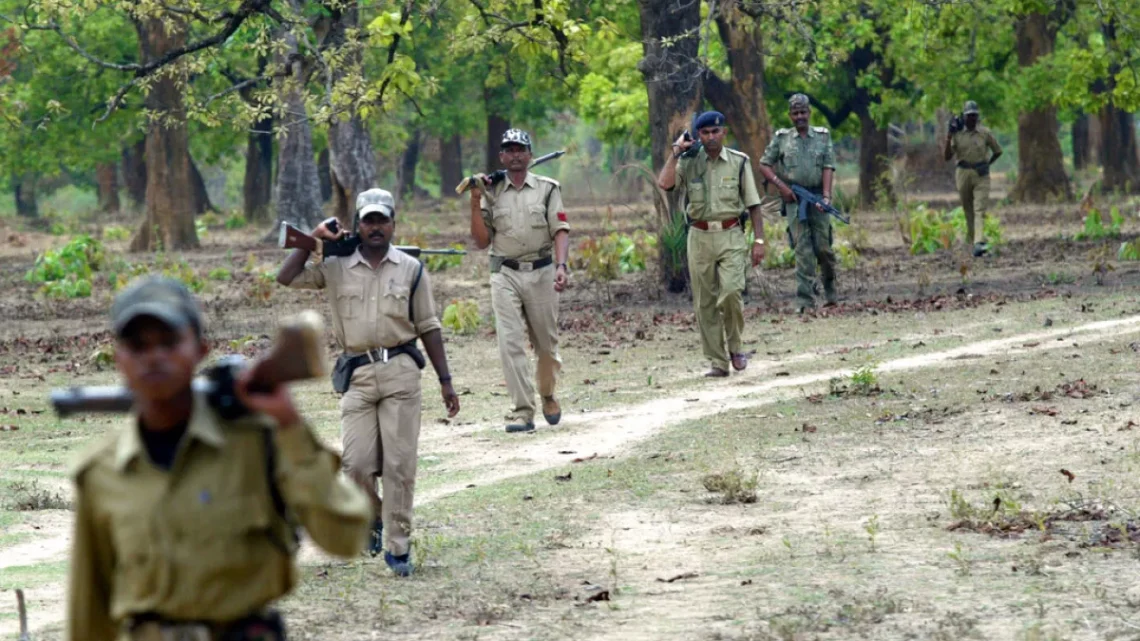
Indian Government’s Planned Military Base in Chhattisgarh Sparks Human Rights Concerns over Anti-Naxalite Strategy
November 8, 2024Sources confirm that CRPF battalions 159, 218, 214, and 22 will be stationed in Chhattisgarh’s Left-Wing Extremism (LWE) areas to reinforce existing security forces.
The Indian government recently announced plans to establish a large military maneuver range and deploy 4,000 Central Reserve Police Force (CRPF) troops in Chhattisgarh, following Union Home Minister Amit Shah’s statement that “time has come to end Maoism.” The Chhattisgarh administration has directed the Narayanpur district to secure over 54,000 hectares of forest land in Abujhmad, a region known as a stronghold of Maoist, or Naxalite, activity. This new maneuver range will serve both as a training ground and a strategic post to strengthen counterinsurgency measures.
Sources confirm that CRPF battalions 159, 218, 214, and 22 will be stationed in Chhattisgarh’s Left-Wing Extremism (LWE) areas to reinforce existing security forces. Historically, Chhattisgarh’s counterinsurgency approach has leaned heavily on aggressive force, often criticized for leading to human rights violations, particularly among indigenous and marginalized communities. The BJP-led government has further increased corporate-backed land acquisitions and security deployments, which, activists claim, have intensified extrajudicial killings, unlawful detentions, sexual violence, and displacement in affected areas.
Observers note that such human rights violations are symptomatic of a larger issue across India, affecting other marginalized communities and territories, particularly under the Modi administration, where Hindu nationalism has gained significant influence. Reports from international human rights groups, such as the United Nations and NGOs, have highlighted the Indian government’s neglect of minority rights and lack of intent to address the grievances of Naxalite-affected communities, 60–70% of whom live in poverty. Rather than promoting peaceful resolution, analysts argue that this militarization approach could risk destabilizing India and threaten regional peace.
Concerns about human rights violations in India have gained international attention. UN experts recently issued a call for India to uphold its commitment to democratic principles by ending violence against religious, ethnic, and indigenous groups. Between 1996 and 2024, the conflict between Indian security forces and Naxalites has led to an estimated 12,877–15,269 casualties, underscoring the urgent need for a solution based on development and social justice rather than force.
Analysts emphasize that addressing the Naxalite movement requires sustainable development, political dialogue, and inclusive growth rather than military repression. Pressure from international human rights organizations and civil society groups is seen as crucial to prompting India to adopt a more human rights-focused approach, rather than perpetuating a cycle of forced state actions that undermine democratic integrity.

